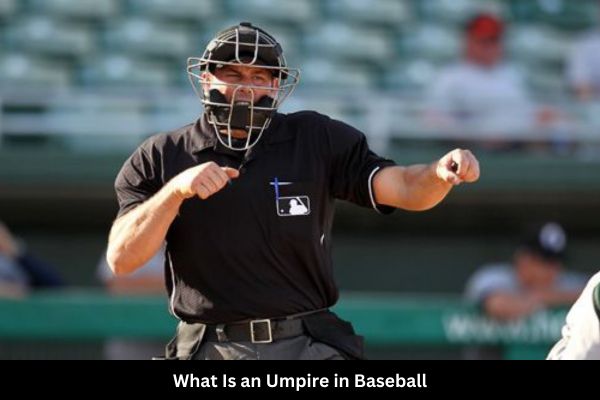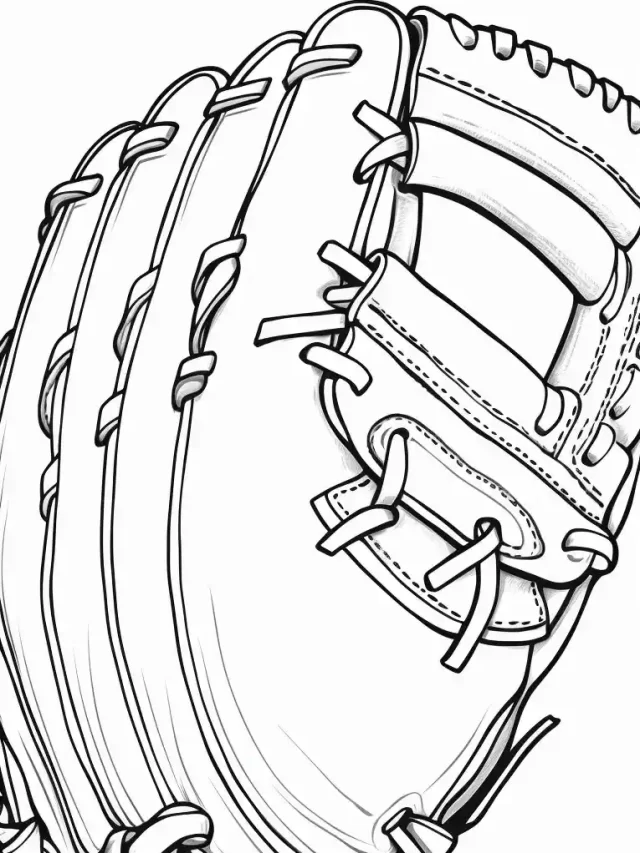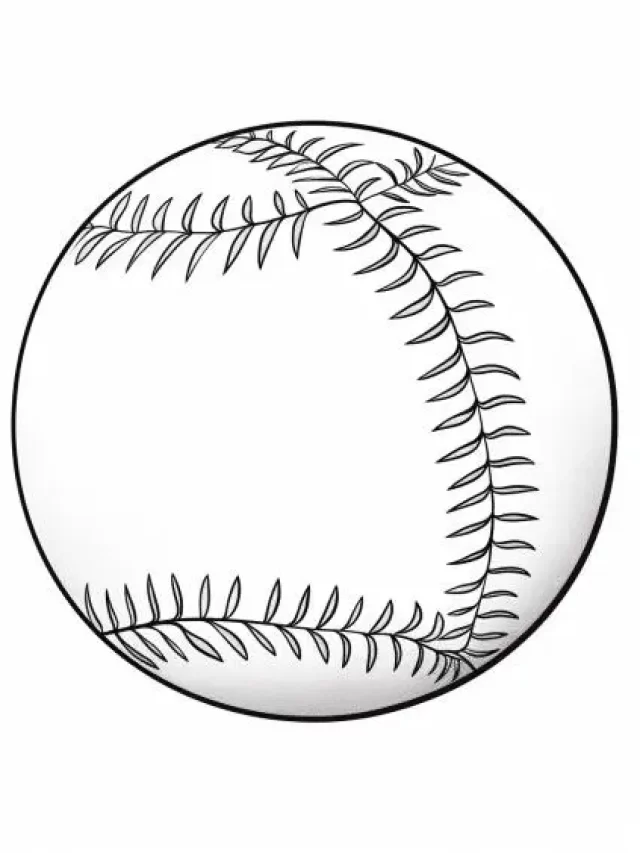 Image Credit-Pinterest
Image Credit-Pinterest
In the dynamic world of baseball, an umpire stands as an authoritative figure, responsible for maintaining the integrity and fairness of the game. An umpire is a specially trained official tasked with enforcing the rules and regulations of baseball, ensuring that the game unfolds with precision and impartiality.
At its core, the term “umpire” signifies an individual who makes decisions and judgments on the field, resolving disputes and upholding the spirit of fair play. Their presence is indispensable in every baseball match, where split-second decisions can shape the course of the game.
The crucial role of an umpire extends beyond merely making calls on balls and strikes. Umpires are the guardians of the game, responsible for overseeing player conduct, validating the outcomes of plays, and maintaining order on the field. Their watchful eyes and unwavering commitment to the rulebook contribute to the overall integrity of baseball as a sport.
In the intricate dance between players, an umpire’s decisions echo with significance, impacting the momentum and outcome of each match. Their impartiality and dedication to the sport’s principles make them indispensable contributors to the rich tapestry of baseball history.
As we delve into the world of baseball umpires, we uncover not just enforcers of rules but custodians of the game’s essence—ensuring that every pitch, hit, and play unfolds within the boundaries of fairness and sportsmanship. This exploration will navigate the nuanced responsibilities of umpires, shedding light on their pivotal role in the captivating drama of America’s favorite pastime.
Understanding the Role of a Baseball Umpire
In the intricate ballet of a baseball game, the role of an umpire goes far beyond the stereotypical image of making calls on balls and strikes. A baseball umpire is, in essence, the linchpin that ensures the smooth orchestration of the game, upholds its integrity, and preserves its competitive spirit. Let’s delve into the specific responsibilities and key decisions that define the role of a baseball umpire:
- Enforcing the Rulebook: An umpire serves as the ultimate arbiter, ensuring that every action on the field aligns with the established rules of the game. From the dimensions of the playing field to the conduct of players, an umpire’s first responsibility is to enforce the rulebook rigorously.
- Calling Balls and Strikes: While perhaps the most visible aspect of their role, calling balls and strikes is only a fraction of what umpires do. Using a keen eye and an in-depth knowledge of the strike zone, they make split-second decisions that can significantly impact a team’s offensive and defensive strategies.
- Overseeing Player Conduct: Umpires are the custodians of sportsmanship on the field. They monitor player behavior, ensuring that the game is played with respect and fairness. Umpires have the authority to penalize players for unsportsmanlike conduct or rule violations.
- Validating Plays: Umpires are responsible for validating the outcomes of plays, such as determining if a baserunner is safe or out. Their decisions, often made in the heat of the moment, can alter the course of an inning or even an entire game.
- Maintaining Order: A crucial but less noticeable role involves maintaining order on the field. Umpires prevent and resolve conflicts among players, coaches, and even spectators. Their ability to defuse tense situations contributes to the smooth flow of the game.
- Conducting Pre-Game Meetings: Before the first pitch, umpires often meet with team managers to discuss ground rules, ensuring everyone is on the same page regarding unique features of the ballpark or any other pre-established conditions.
- Reviewing Instant Replay: In modern baseball, some decisions are subject to review through instant replay. Umpires participate in this process, carefully analyzing footage to confirm or overturn their initial calls.
Impact on the Game
The decisions made by an umpire have a profound impact on the ebb and flow of a baseball game. From determining the outcome of close plays to maintaining a fair and competitive environment, their role is both nuanced and pivotal. The trust placed in umpires to make impartial and accurate decisions is foundational to the essence of baseball as a sport.
In our exploration of the umpire’s role, we uncover not just officials enforcing rules but guardians of the sport’s spirit, ensuring that the drama on the field unfolds with integrity and sportsmanship.
Exploring the Distinction: Referee vs. Umpire
The terms “referee” and “umpire” are often used interchangeably, but they carry distinct roles, each integral to the smooth functioning of different sports. Let’s delve into the nuances of their responsibilities and explore how their roles vary across various sports.
Referee
- Definition: A referee is a sports official responsible for enforcing the rules of the game and ensuring fair play. Referees are commonly found in sports such as soccer, basketball, and football.
- General Responsibilities: Referees oversee the entire game, making decisions on fouls and violations and ensuring overall adherence to the rulebook. They have the authority to stop or pause the game, award penalties, and manage the conduct of players and coaches.
- Authority: Referees have a comprehensive role that extends beyond the immediate play on the field. They often act as timekeepers and scorekeepers and have the authority to eject players or coaches for severe rule infractions.
- Signalization: Referees use specific hand signals and gestures to communicate decisions to players, coaches, and spectators. Clear and standardized signals are crucial for maintaining transparency and understanding on the field.
- Uniform: Referees typically wear distinctive uniforms, making them easily identifiable on the field. This ensures that players and spectators can recognize the officials responsible for enforcing the rules.
Umpire
- Definition: An umpire, on the other hand, is a specific type of official primarily associated with sports like baseball, cricket, and tennis.
- General Responsibilities: Umpires focus on the application of rules within the context of specific plays. In baseball, for example, umpires make determinations on balls and strikes, safe or out calls, and other play-specific decisions.
- Authority: While their authority is confined to the intricacies of the game they officiate, umpires wield significant power in making critical decisions that directly impact the flow and outcome of the match.
- Signalization: Umpires use a set of signals to convey decisions, especially in situations like indicating a home run, safe/out calls, or signaling a foul ball. The precision of these signals is crucial for clarity on the field.
- Uniform: Similar to referees, umpires wear distinctive uniforms, ensuring their visibility and recognition during the game.
Variations Across Sports
In Soccer (Football)
- Referee: Manages the entire game, including stoppages, fouls, and overall fair play.
- Umpire: Not commonly used in soccer, roles akin to those of an umpire are often performed by the referee.
In Baseball
- Referee: Not used in baseball; the primary official is the umpire.
- Umpire: Makes crucial decisions on pitches, plays, and player conduct.
In Tennis
- Referee: Oversees the entire match, ensures adherence to rules, and may handle off-court matters.
- Umpire: Manages specific aspects of play, like calling lines and making decisions on disputes.
Understanding the distinctions between referees and umpires is essential, as it reflects the varied demands and intricacies of different sports. While both roles share the common goal of maintaining fairness, their specific duties and impact on the game are tailored to the nuances of the sports they officiate.
Unraveling the Origins: Why They Are Called Umpires in Baseball
The term “umpire” holds a rich history within the realm of baseball, encapsulating the evolution of a pivotal role that transcends mere officiation. To comprehend why these arbiters are called “umpires,” we must embark on a journey through the annals of baseball history.
Origin of the Term
The word “umpire” traces its roots to the Old French term “nompere,” where “non” meant not and “pere” meant equal. Over time, this evolved into “noumpere” in Middle English, signifying a neutral party who adjudicates disputes. By the 17th century, “noumpere” had transformed into the modern “umpire,” denoting an impartial judge or arbiter.
Evolution within Baseball
- Early Days: The nascent days of baseball lacked a formalized officiating role. Instead, players themselves settled disputes, often leading to contentious outcomes. Recognizing the need for a neutral authority, baseball organizers introduced the position of umpire in the mid-19th century.
- The Knickerbocker Rules: The Knickerbocker Base Ball Club, credited with formalizing many early baseball rules, adopted the term “umpire” in their regulations in 1845. This marked a pivotal moment in the codification of baseball practices, emphasizing the role of an impartial figure to make crucial decisions during a game.
- Significance of Neutrality: The term “umpire” inherently embodies neutrality—a quality paramount to the role. In the context of baseball, where fairness and impartiality are foundational, the title “umpire” underscores the objective nature of their adjudications.
The Umpire’s Symbolic Significance
- Guardian of Fair Play: The evolution of the umpire’s role transformed them from mere rule enforcers to guardians of fair play. The title encapsulates their duty not only to interpret and enforce the rules but also to ensure the integrity of the game.
- Symbol of Authority: “Umpire” carries a weighty symbolism, symbolizing the authority vested in these individuals to maintain order and justice on the baseball field. Their decisions, often made in the heat of the game, shape the narrative and outcome.
Modern Context
- Respected Title: Today, the title of “umpire” is not merely a descriptor; it is a respected designation that signifies expertise, impartiality, and a deep understanding of the intricacies of baseball.
- Integral to the Game: In the contemporary baseball landscape, umpires are integral to the very fabric of the sport. Their role extends beyond officiating—they embody the spirit of baseball as impartial overseers entrusted with upholding the game’s essence.
In essence, the term “umpire” encapsulates the enduring commitment to fairness and order within baseball. Its historical journey from the linguistic roots of “noumpere” to its modern significance reflects the evolution of a role that goes beyond its etymological origins—a role that embodies the essence of impartial judgment on the diamond.
Icons of the Diamond: Famous Umpires in Baseball History
Baseball history is adorned with iconic figures who, despite their roles often played in the shadows, have left an indelible mark on the sport. Here, we shine a spotlight on some of the most famous umpires in baseball history, celebrating their contributions and recalling memorable moments that have shaped the game.
Bill Klem: The Father of Umpires
- Legacy: Bill Klem is heralded as one of the greatest umpires in baseball history, officiating from 1905 to 1941.
- Contributions: Renowned for his consistency and professionalism, Klem set the standard for future umpires. His keen judgment and unwavering demeanor earned him the nickname “The Old Arbitrator.”
Doug Harvey: Umpire Supreme
- Legacy: Doug Harvey, known as “God” by players, was a National League umpire from 1962 to 1992.
- Contributions: Harvey’s distinguished career included officiating five World Series and six All-Star Games. He was revered for his mastery of the rulebook and unflappable presence on the field.
Hank O’Day: Triple Threat
- Legacy: Hank O’Day, active from 1895 to 1927, is the only person to have played, managed, and umpired in the World Series.
- Contributions: O’Day’s versatility and deep understanding of the game made him a respected figure. He umpired in multiple World Series, leaving an enduring impact on baseball history.
Pam Postema: Breaking Barriers
- Legacy: Pam Postema made history as the first woman to umpire in professional baseball, beginning her career in the minor leagues in 1977.
- Contributions: Despite facing resistance, Postema’s dedication opened doors for future female umpires. Her trailblazing efforts challenged gender norms and expanded opportunities for women in baseball.
Memorable Moments Involving Umpires
- Don Denkinger’s Call (1985): In Game 6 of the 1985 World Series, umpire Don Denkinger’s controversial call at first base became a defining moment. The call, later acknowledged as an error, played a pivotal role in the Kansas City Royals’ championship victory.
- Jim Joyce’s Imperfect Game (2010): Umpire Jim Joyce’s tearful admission of a blown call that cost Detroit Tigers pitcher Armando Galarraga a perfect game stands as a poignant reminder of the human element in umpiring and its impact on players’ legacies.
- Roberto Alomar’s Spitting Incident (1996): In a highly publicized incident, umpire John Hirschbeck ejected Roberto Alomar for arguing a call. The situation escalated when Alomar spat in Hirschbeck’s face. The incident brought attention to the emotional toll on umpires and the need for mutual respect.
Famous umpires have not only officiated games but have become integral to the narrative of baseball itself. Their contributions, from shaping the evolution of umpiring standards to being central figures in historical moments, showcase the profound impact umpires have on the game’s legacy. These umpires, whether through their exemplary careers or unforgettable moments, have earned their place in the hallowed halls of baseball history.
Conclusion
In the intricate tapestry of baseball, umpires emerge as silent architects of fairness and custodians of the game’s very essence. Their role extends beyond the boundaries of the diamond, weaving a narrative of impartiality and order essential for the sport’s integrity.
Umpires, often unsung heroes, navigate the nuanced responsibilities of enforcing rules, making split-second decisions, and overseeing the conduct of players. Their judgments resonate far beyond the box score, shaping the destiny of teams and etching moments into the annals of baseball history.
As we reflect on the pivotal role of umpires, it becomes evident that their commitment to fairness is the bedrock upon which the game stands. They are the guardians who ensure that every pitch, hit, and play unfolds within the contours of sportsmanship and adherence to the rulebook.
Respecting and understanding umpires is not merely a courteous acknowledgment but a tribute to the sanctity of baseball itself. It’s an acknowledgment that behind the crisp uniforms and subtle hand signals, there lies an unwavering commitment to maintaining the balance between competition and fairness.
In the roar of the crowd and the crack of the bat, umpires stand as silent sentinels, preserving the soul of baseball. Their role, though often unnoticed, is indispensable. It beckons us to view the game not just as a contest of athleticism but as a symphony of integrity, where umpires orchestrate the harmonious pursuit of victory within the boundaries of fairness.
Therefore, let us not only applaud the players on the field but also recognize and appreciate the umpires, who, with each call, contribute to the enduring legacy of America’s favorite pastime.
How much did you like Demystifying the Role of Baseball Umpires? Share your view in the comment box. Also, share this blog with your friends on social media so they can also enjoy it. For more blogs, visit baseballpropicks.com
Related Article:
- Cultural Impact: Baseball Caps in Fashion
- Understanding the Basics of Baseball
- Historical Moments in Baseball
- Inside Baseball: The Core Cover
- Best Baseball Gloves by Position

Meet Daniel Anderson, the heart and soul behind Baseball Pro Picks. At 49, Daniel’s life has revolved around baseball, a passion that’s as strong today as it was when he first fell in love with the game. Living in the USA, Daniel has dedicated countless hours to watching, analyzing, and understanding every pitch, hit, and home run, making almost no game missed. His deep-rooted love for the sport is matched only by his commitment to sharing insightful, expert analysis with fellow baseball enthusiasts. With decades of experience and a keen eye for the game’s nuances, Daniel brings a unique perspective that enriches Baseball Pro Picks. Trust Daniel to guide you through the intricacies of baseball with the authority and trustworthiness of a true aficionado.












